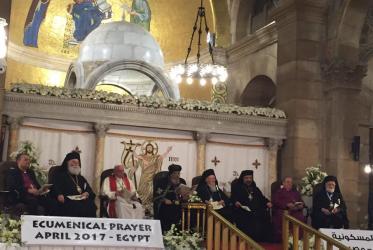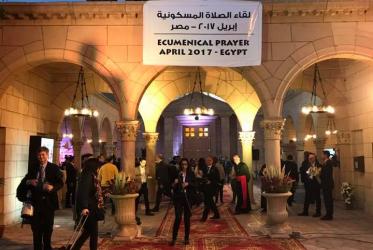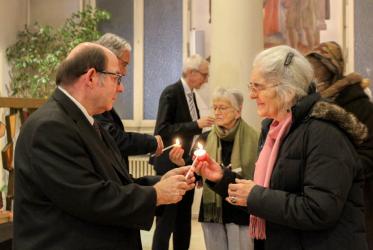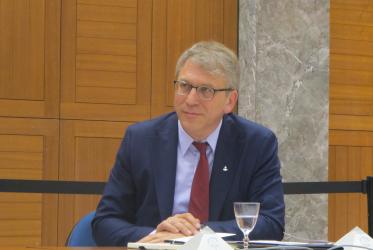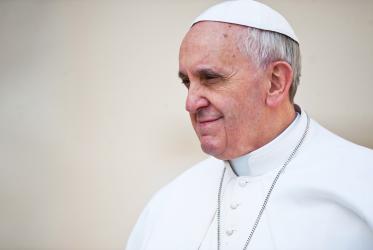Displaying 61 - 80 of 98
30 April 2017
Churches in Norway and Pakistan break new ecumenical ground
26 January 2017
Christians in Geneva pray for reconciliation
20 January 2017
What does ‘prudence’ mean for dialogue and peace-building?
16 November 2016
Tveit offers input at religion and development meeting
03 October 2016
A fresh agenda for ecumenism in Asia
20 July 2016
Catholic-WCC group pursues new mandate
13 April 2016
Jürgen Moltmann leads ecumenical reflections in Geneva
14 January 2016
Taizé - Living Ecumenism
01 October 2015
WCC urges responsibility for and support to the refugees in Europe
04 September 2015
